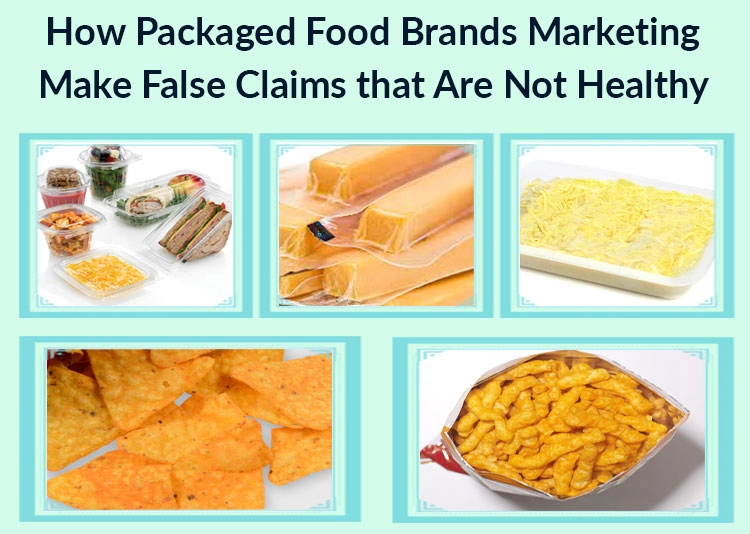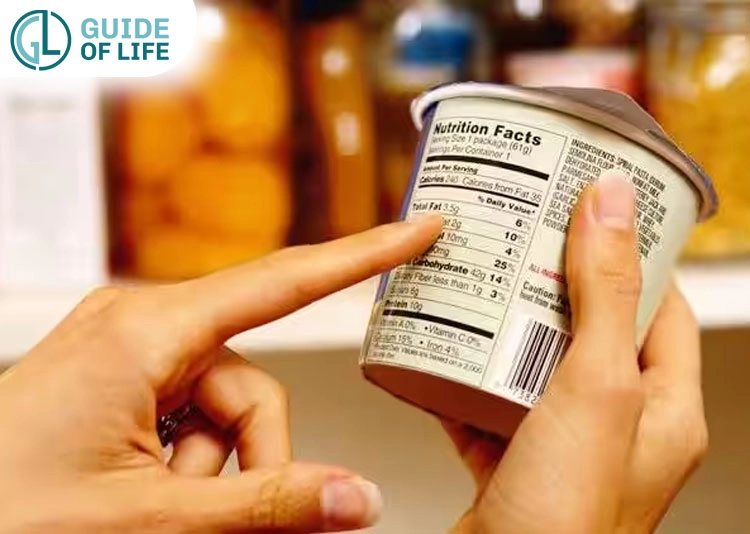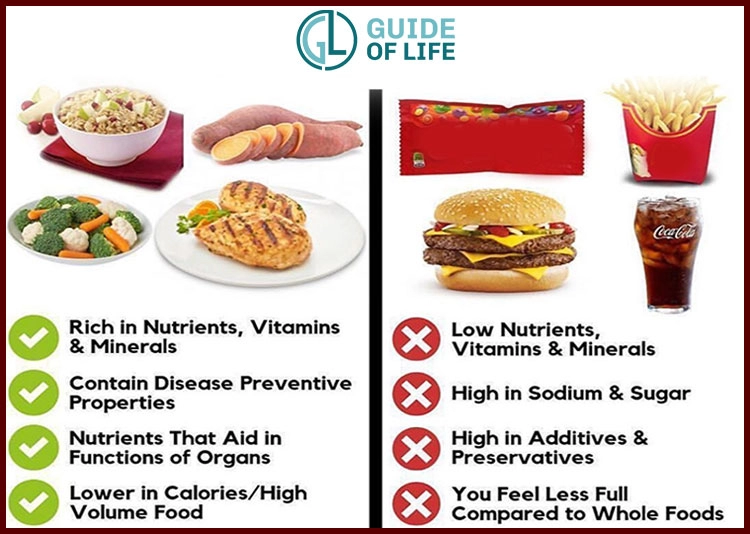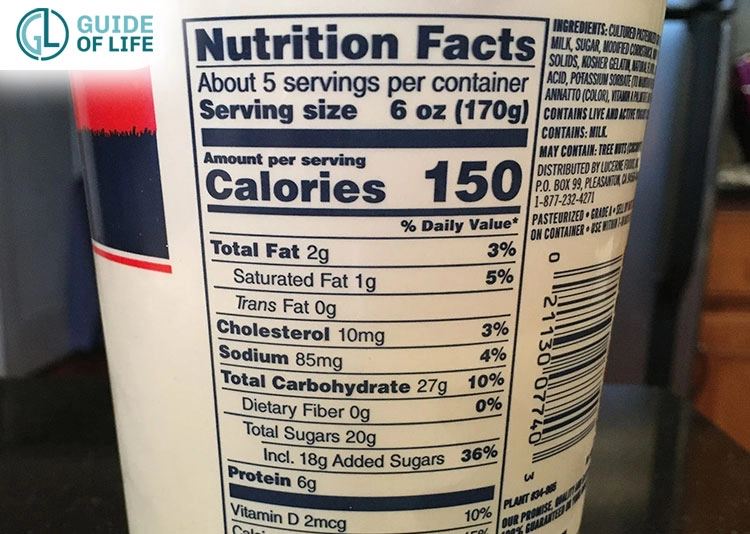How Packaged Food Brands Marketing Make False Claims that Are Not Healthy

Do you often buy packaged food products that claim to be natural, organic, gluten-free, or superfood? Do you think that these products are healthy and good for you? If yes, then you may be surprised to learn that these claims are not always true. In fact, some of these products may contain high amounts of sugar, salt, fat, or artificial ingredients that can harm your health. In this blog, we will explain how packaged food brands marketing make false claims that are not healthy and how you can avoid being fooled by them.
How Brands Fool Consumers
Packaged food brands often use marketing strategies that make false or misleading claims about the health benefits of their products. These claims may include words such as "natural", "organic", "antioxidant", "gluten-free", "whole grain", or "super food". However, these words do not necessarily mean that the products are healthy or nutritious. They are just buzzwords that are used to attract consumers and make them think that the products are better than they actually are.
1. The Truth About Packaged Food Products

Packaged food products are processed food products that have been altered from their natural state to extend their shelf life, enhance their flavor, or improve their appearance. Packaged food products may contain additives, preservatives, colouring, flavorings, sweeteners, or other artificial ingredients that can have negative effects on your health. Some of these effects may include:
2. Packaged Food is Really Healthy or Not

The truth is that packaged food is not always healthy or good for you. Packaged food is processed food that has been altered from its natural state to extend its shelf life, enhance its flavor, or improve its appearance. Packaged food may contain additives, preservatives, coloring, flavorings, sweeteners,
or other artificial ingredients that can have negative effects on your health. Some of these effects may include:
- Weight gain and obesity
- Diabetes and high blood sugar
- High blood pressure and cholesterol
- Heart disease and stroke
- Cancer and inflammation
- Allergies and intolerance
- Digestive problems and constipation
- Hormonal imbalances and mood swings
- Reduced immunity and increased infections
Packaged food may also lack essential nutrients, such as vitamins, minerals, antioxidants, fiber, and protein, that your body needs to function properly. Packaged food may also have low satiety value, meaning that it does not make you feel full or satisfied for long. This may lead you to overeat or snack more often, which can further harm your health.
Therefore, packaged food is not really healthy or good for you. It is better to eat fresh, whole, and natural foods that are rich in nutrients and beneficial for your health.
3. False Advertisement in Nutrition and Immunity Products

One of the most common types of false advertisement in packaged food is in nutrition and immunity products. These are products that claim to provide extra nutrition or boost your immunity with added vitamins, minerals, probiotics, herbs, or other ingredients. However, these claims are often exaggerated or unsupported by scientific evidence. Some examples of false advertisement in nutrition and immunity products are:
Vitamin water: This is a type of flavored water that claims to provide various vitamins and minerals for your health. However, vitamin water is mostly water with added sugar, coloring,and flavoring.
The amount of vitamins and minerals in vitamin water is usually very low and does not meet your daily requirements. Vitamin water may also have more calories than regular water, which can contribute to weight gain. Vitamin water is not a substitute for real fruits and vegetables, which are the best sources of vitamins and minerals.
• Energy bars: These are bars that claim to provide energy, protein, and fiber for your health.
However, energy bars are mostly processed grains, sugar, and fat. The amount of protein and fiber in energy bars is usually very low and does not meet your daily requirements. Energy bars may also have more calories than regular snacks, which can contribute to weight gain. Energy bars are not a substitute for real foods, which are the best sources of energy, protein, and fiber.
• Immunity boosters: These are products that claim to boost your immunity and protect you from diseases with added probiotics, herbs, or other ingredients. However, immunity boosters are mostly sugar, water, and flavouring. The amount of probiotics, herbs, or other ingredients in immunity boosters is usually very low and does not have any significant effect on your immunity. Immunity boosters may also have more calories than regular drinks, which can contribute to weight gain. Immunity boosters are not a substitute for a balanced diet, exercise, and sleep, which are the best ways to boost your immunity.
These are some examples of false advertisements in nutrition and immunity products. There are many more products that make similar claims that are not true or healthy. You should be careful and skeptical of these products and always read the labels and ingredients before buying them.
What Brands Write Behind the Products
Another way to avoid being fooled by false claims on packaged food is to read what brands write behind the products. This is where you can find the nutrition facts panel and the ingredient list of the products. This is important information that can help you judge the healthiness of the products. Here are some tips on how to read what brands write behind the products:
• Nutrition facts panel: This is where you can find the amount of calories, fat, sodium, sugar, protein, fibre, and other nutrients per serving of the product. You should pay attention to the serving size and compare it with how much you actually eat. You should also look for products that have low calories, fat, sodium, and sugar, and high protein, fibre, and other nutrients. You should also look for products
• Ingredient list: This is where you can find the names of all the ingredients that are used in the product. The ingredients are listed in descending order by weight, meaning that the first ingredient is the most abundant and the last ingredient is the least abundant. You should look for products that have a short and simple ingredient list that contains mostly natural and recognizable ingredients.
• High fructose corn syrup: This is a type of sugar that is made from corn and is cheaper than regular sugar. It is often added to sweeten packaged foods and drinks. However, high fructose corn syrup can increase your blood sugar levels, cause inflammation, and contribute to obesity, diabetes, and other diseases.
• Partially hydrogenated oils: These are oils that have been chemically altered to make them solid at room temperature. They are often added to increase the shelf life and texture of packaged foods. However, partially hydrogenated oils contain trans fats, which can raise your bad cholesterol levels, lower your good cholesterol levels, and increase your risk of heart disease, stroke, and cancer.
• Monosodium glutamate (MSG): This is a type of flavour enhancer that is added to make packaged foods taste more savoury. However, MSG can cause headaches, nausea, dizziness, and other adverse reactions in some people. MSG can also make you eat more than you need, as it stimulates your appetite.
These are some examples of artificial and unrecognisable ingredients that you should avoid in packaged foods. There are many more ingredients that you should be aware of and research before buying them.
Conclusion
Packaged food brands marketing make false claims that are not healthy for consumers. They use buzzwords and images to make their products seem healthier than they actually are. They also use false advertisements in nutrition and immunity products to make their products seem more beneficial than they actually are. Consumers need to be more aware and critical of these claims and read what brands write behind the products. Consumers should also compare different products and choose the ones that have less sugar, salt, fat, or artificial ingredients. By doing so, consumers can make better and healthier food choices. Thank you for reading!
Reference - https://youtu.be/gndV_d_Q1SE?si=95eEsf0MqZSYqQ8Z

